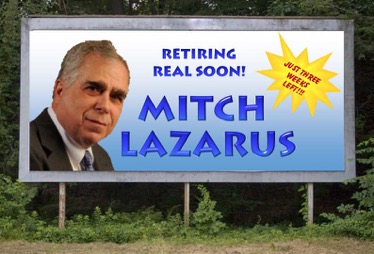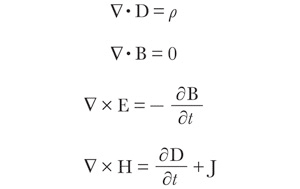Delegation of Authority @FCC
Last week, the FCC home page had the surprising headline “Comms. Pai and O'Rielly Joint Stmt on Abuse of Delegated Authority” which was linked to a document entitled “Joint Statement of Commissioners Ajit Pai and Michael O’Rielly on the Abandonment of Consensus-Based Decision-Making at the FCC” - note the tone of the linked document vs. the headline, although the headline might have had a Twitter-like character limit. For those who live way way outside the Beltway, Commissioners Pai and O’Rielly are the 2 Republican commissioners and both are former Senate staffers, so this might be related in part to the more generally partisan feuding/dysfunction here. The 3 other commissioners are Democrats and are also well connected with their party. Professors of telecommunications issues, either policy or technical, have not gotten get surprise phone calls from the White House in the past few decades to discuss possible FCC appointments. As in most regulatory agencies for the past 2 decades, good political connections are essential for such an appointment!
The commissioners are expressing outrage over the apparent release of 2 documents without an opportunity for them to comment and vote on them. The documents are:
- Declaratory Ruling on Reexamination of Roaming Obligations of Commercial Mobile Radio Service Providers and Other Providers of Mobile Data Services
- 17th Annual Report and Analysis of CompetitiveMarket Conditions With Respect to Mobile Wireless, Including Commercial Mobile Services
Getting back to basics, Section 5(c) of the Communications Act provides:
Delegation of functions; exceptions to initial orders; force, effect and enforcement of orders; administrative and judicial review; qualifications and compensation of delegates; assignment of cases; separation of review and investigative or prosecuting functions; secretary; seal
(1) When necessary to the proper functioning of the Commission and the prompt and orderly conduct of its business, the Commission may, by published rule or by order, delegate any of its functions (except functions granted to the Commission by this paragraph and by paragraphs (4), (5), and (6) of this subsection and except any action referred to in sections 204 (a)(2), 208 (b), and 405 (b) of this title) to a panel of commissioners, an individual commissioner, an employee board, or an individual employee, including functions with respect to hearing, determining, ordering, certifying, reporting, or otherwise acting as to any work, business, or matter; except that in delegating review functions to employees in cases of adjudication (as defined in section 551 of title 5), the delegation in any such case may be made only to an employee board consisting of two or more employees referred to in paragraph (8) of this subsection. Any such rule or order may be adopted, amended, or rescinded only by a vote of a majority of the members of the Commission then holding office. Except for cases involving the authorization of service in the instructional television fixed service, or as otherwise provided in this chapter, nothing in this paragraph shall authorize the Commission to provide for the conduct, by any person or persons other than persons referred to in paragraph (2) or (3) of section 556 (b) of title 5, of any hearing to which such section applies.
…
(3) Any order, decision, report, or action made or taken pursuant to any such delegation, unless reviewed as provided in paragraph (4) of this subsection, shall have the same force and effect, and shall be made, evidenced, and enforced in the same manner, as orders, decisions, reports, or other actions of the Commission.
(4) Any person aggrieved by any such order, decision, report or action may file an application for review by the Commission within such time and in such manner as the Commission shall prescribe, and every such application shall be passed upon by the Commission. The Commission, on its own initiative, may review in whole or in part, at such time and in such manner as it shall determine, any order, decision, report, or action made or taken pursuant to any delegation under paragraph (1) of this subsection....
Was the release of the 2 documents by Chief WTB consistent with his delegated authority per Section 0.331 of the Commission’s Rules? We will leave that for others to judge.
However, the worst possible outcome of this kerfuffle would be a general tightening up of all delegated authority. Why? In the opinion of your blogger FCC spectrum policy productivity is grossly mismatched with the problems at hand and the gap is growing. While megaproblems like the incentive auction (and net neutrality and the 3 big pending corporate mergers) are getting reasonable attention, lesser problems that need 8th Floor attention and action under current arrangements are not. These deal with both innovative wireless technologies and interference to existing wireless systems, e.g. the police radar detector/VSAT issue - 15 years, the ongoing cellular booster/base station problem - 10 years and counting, and the FM/700 MHz LTE problem - not even acknowledged yet. All of these interference issues required rule changes to resolve and 8th Floor input was appropriate and needed. Many new technologies issues are also in the slow lane. The 24+ GHz mobile NOI mentions in passing an FWCC 5/9/12 petition that lingered and is now “stale”. Why is it stale? FCC indifference and inaction!
In the first of the controversial documents listed above, T-Mo applied for a declaratory ruling on 5/9/14 and received it on 12/18/14. Wow! What happened with the IEEE-USA similar request for a declaratory ruling filed on 7/1/13? It only deals with new technology in virgin bands and has never been opposed by anyone, when will it get resolved? While the Battelle petition for use of 102-109.5 GHz for fixed systems filed almost a year ago? They did not ask for Sec. 7 treatment and FCC has previously said you have to ask, but it should not take much analysis to show this is virgin spectrum and there is no threat to incumbents, so maybe int he spirit of the law timely action would be a good idea? How about the soon to retire Mitch Lazarus’ comments in the Wireless Innovation NOI - no FCC action in 4 years on the whole NOI - documenting the problems that innovators face in getting any action from FCC?
These backlogs in both new technology issues and emerging interference resolution show the real productivity shortfall at FCC as presently operating. I really doubt that FCC can increase its productivity to match the job at hand by “rearranging deck chairs”. In my comments to The House Energy and Commerce Committee earlier this year I proposed carefully increasing the delegations of authority under Part 0. This is not necessarily inconsistent with the concerns of Commissioners Pai and O’Rielly. I suggest that the 8th Floor try to sort pending classes of items into categories according to how much attention from presidential appointees and their staffs they need. Thus for nonpolitical items, the commissioners might function more like the Ofcom Board, setting policies for the staff to implement on a case by case basis on delegated authority subject to review. For more politically sensitive issues the commissioners could have primary jurisdiction.
The key issue is how to improve productivity for all the issues before FCC so that it matches the problems at hand. This issue is not a new one and it has been created over the past decade or 2. But it is very serious now and a simply restricting of delegated authority across the board will make things even worse.
Mitchell Lazarus Retiring

Mitch Lazarus, a long time spectrum attorney, has announced his pending retirement (“mostly”). CommLawBlog gives this summary of his career:
Mitch came to the law the long way around and relatively late in life. Holding advanced degrees from M.I.T. and Georgetown University in three different fields, he has earned his living as an electrical engineer, psychology professor, education reformer, educational TV developer, free-lance writer, and (until now) telecommunications lawyer. His legal specialty, in addition to fixed microwave communications, has been securing regulatory approvals for new technologies. Most of this work involves behind-the-scenes industrial and commercial devices, but CommLawBlog readers will be familiar with at least two of his successes: contemporary Wi-Fi and the “millimeter wave” body scanners used at U.S. airports.
As of today ECFS has 640 filings he authored since 1999. Many deal with unlicensed issues, an area that he spent a lot of time in. For example, he represented the Wireless Ethernet Compatibility Alliance before it was renamed the more familiar Wi-Fi Alliance. He also was a cofounder of the FCBA’s Engineering and Technology Practice Committee and strongly supported its activities.
He will not be abandoning the spectrum policy field completely, remaining “of counsel” at Fletcher Heald & Hildreth, although he will be pursuing interests such as finishing a book about the Manhattan Project.
Happy 150th Birthday Maxwell's Equations!

As shown above, December 8 is the 150th anniversary of James Clerk Maxwell’s presentation on electromagnetic theory to the Royal Society in London. While the 4 equation for the interaction of electric and magnetic fields that we techies know well were not written in the current form for another 20 years, the basic theory was all there in complex form involving 20 equations. (Oliver Heaviside, who is mentioned parenthetically in a song in the musical Cats, was later responsible for the 4 equation version and the modern vector notation.)
Maxwell showed how previous electrical and magnetic observations were all consistent and related to each other and also predicted electromagnetic waves, e.g. radio and light. Maxwell died in 1879. In 1886 Heinrich Hertz of Technische Hochschule (now the Karlsruhe Institute of Technology) in Karlsruhe, Germany demonstrated that electromagnetic waves/radio waves actually exist.
The current issue of IEEE Spectrum magazine has a nice article for general audiences on how this all came about and its significance. Below are the 4 equations, in differential form - physicists often prefer the integral form - along with Spectrum’s brief summary.

Today, the relationship between electricity and magnetism, along with the wave nature of light and electromagnetic radiation in general, is encoded in the four “Maxwell’s equations” shown above. The equations can be written in different ways. Here, J is the current density. E and B are the electric and magnetic fields, respectively. And there are two other fields, the displacement field D and the magnetic field H. These fields are related to E and B by constants that reflect the nature of the medium that the fields pass through (the values of these constants in vacuum can be combined to give the speed of light). The displacement field D was one of Maxwell’s key contributions, and the last equation describes how both current and changing electric fields can give rise to magnetic fields. The symbols at the beginning of each equation are differential operators. These compactly encode calculus that involves vectors, quantities that have a directionality and thus x, y, and z components. Maxwell’s original formulation of his electromagnetic theory contained 20 equation
Fox News Rants on "War on Christmas" While FCC "War on Millimeter Waves" Continues

Today, in time for the holiday season, The Washington Post reports that Bill O’Reilly is back to his ranting on the “war on Christmas”. Something that is not obvious as holiday decorations are going up everywhere and holiday music is becoming ubiquitous.
But also today I got from a client an FCC rejection of a millimeter wave experimental application that had the attached explanation:
“You are advised that the Commission is unable to grant your application for the facilities requested. We have received an objection to your application from NSF. If you still wish to pursue this testing, you should exclude the passive band (X - Y) GHz on your application to further discuss your request prior to refilling.” (We are not giving the exact band here to protect the privacy of the applicant)”
This action is a natural consequence of the bizarre revision of § 5.85(a) in the Report and Order of Docket 10-236 on January 31, 2013 that apparently was a clerical error! A timely Petition for Reconsideration as filed by your blogger and received support from several parties, including Boeing - a real Fortune 500 corporation with a real lawyer representing them! Since then - NOTHING! Except of course, today’s rejection of the client’s application. (Your blogger was not involved in the filing, so this rejection is actually income generating, so thanks FCC in a way!)
The § 5.85(a) problem is only one part of the FCC’s 3 prong “war on millimeterwaves”. As described here previously, the other 2 prongs are:
- The inaction on the 7/1/13 IEEE-USA petition seeking to to declare technology above 95 GHz to be presumptively “new technology” in the context of 47 USC 157 and therefore entitled to timely consideration with the burden of proof on those opposed to such new technology
- The failure of the RF safety NPRM, Docket 13-84, to propose quantitative safety standards above 100 GHz even though it is based on an IEEE standard that goes to 300 GHz.
While one might argue that the NOI in Docket 14-177 is a major change in the “war on millimeter waves”, a careful reading shows that the authors tried very hard to limit the coverage to both 24-86 GHz only as well as to mobile only, although there is passing mention of cellular backhaul.
So while the “war on Christmas” exists only in the minds of a few people at Fox News, the “war on millimeter waves is quite real at FCC!




![Validate my RSS feed [Valid RSS]](valid-rss-rogers.png)

